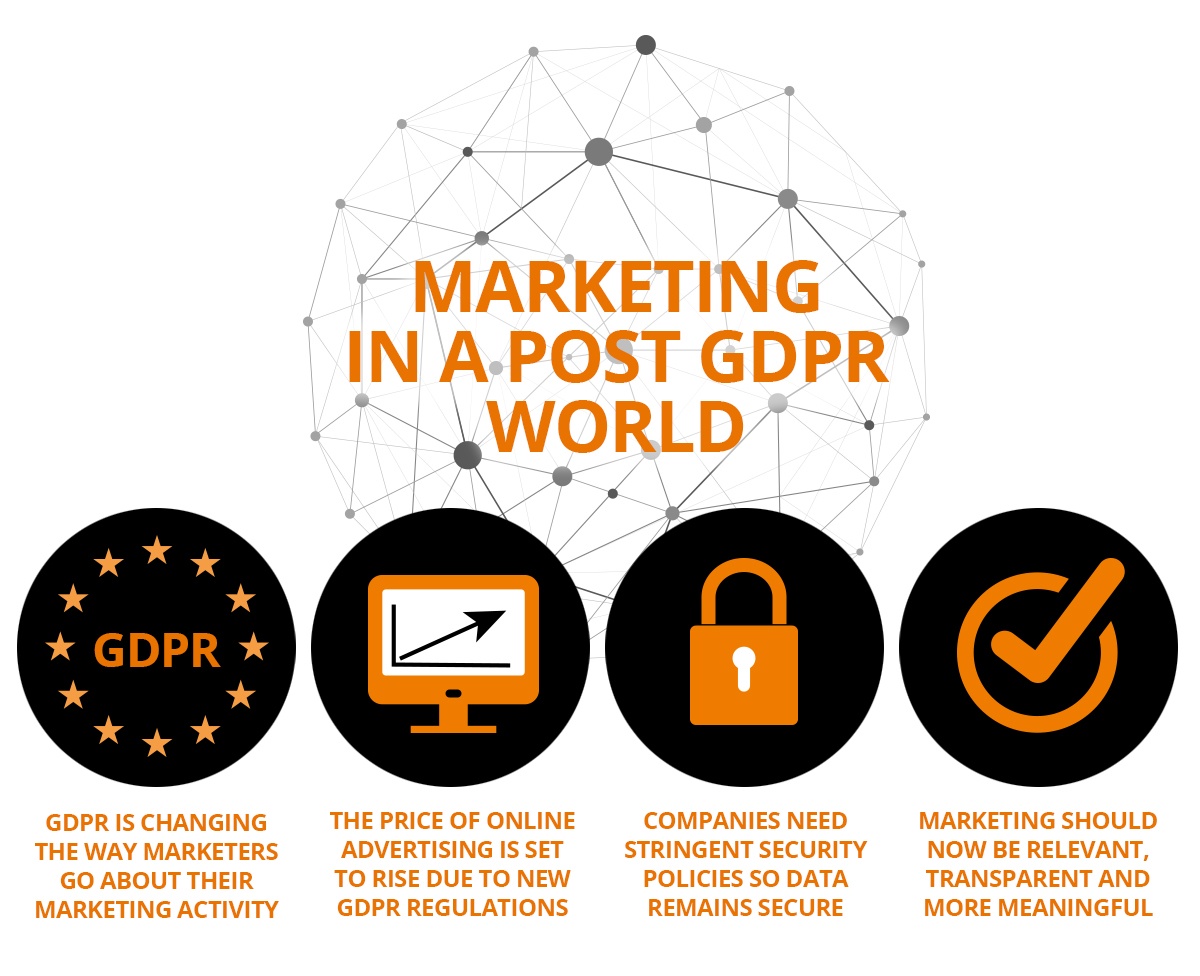GDPR is finally here. After a deluge of opt-in emails and companies scrambling to update their privacy policies, the General Data Protection Regulation is now in full swing and marketing departments throughout Europe are carrying out their day-to-day activities in a brave new world.
Seven years in the making, GDPR is more than just getting your database to opt-in to your marketing material. The new regulation is a huge change in data protection and puts individuals’ privacy first - giving them the right to be protected and, if needed, forgotten.
Fundamentally, GDPR impacts on every business in Europe and, crucially those dealing with any data belonging to an EU citizen, making companies, from SMEs to PLCs, accountable for their actions.
While making it a level playing field for all companies with business across the continent, GDPR does present some significant challenges for marketing departments.
So, what does this mean for marketers?
As far as marketing activity is concerned, GDPR is a game-changer. Whether it be direct, online, affiliate or social, this new regulation makes marketers think about the way they handle data. In short, companies need to be transparent about what data they are collecting and what they plan to do with the individual’s data.
For those firms who rely heavily on direct marketing, particularly in a B2C environment, they will need to demonstrate that the user has given lawful consent to be contacted – i.e. the prospects in their database have opted in to receive marketing material. What’s more, the collection of data needs to be relevant and purposeful – this means if you are running a specific campaign, and you want to capture data, then that data can only be used for that purpose. The days of collecting a plethora of business cards at a trade event and just throwing them into your main mailing database appear to be coming to an end.
Having said that, the rules for B2B direct marketing are less clear. Whilst getting consent from your data subjects is best practice, many B2B firms could potentially carry on with their direct marketing activities under legitimate interest.
According to the DMA “If a business decides to use the legitimate interest precedent for their direct marketing, then it will be able to send email marketing on an unsubscribe/opt-out basis”.
This isn’t a simple tactic to get around GDPR, B2B firms still need to comply with the other elements of GDPR and prove that they have a legitimate need to market them.
Yet it’s not just direct communications which appear to be at the mercy of GDPR. Advertising on online platforms has also changed. According to Marketing Week, brands could see the price of personalised online advertising skyrocket due to how few publishers have obtained consent from consumers to use their information.
As a result, Google has already stated that it will offer publishers non-personalised targeted adverts, while Facebook have already removed some targeted options from their advertising platform. In some cases, marketers will need to use more generic advertising categories, and this could impact the responsiveness of their campaigns.

GDPR also means tighter security
Recent events surrounding Cambridge Analytica and Facebook suggest that stronger data protection rules are long overdue – and GDPR addresses that. The GDPR regulations gives users more control about how and what data is collected and stored. Individuals now have the right to be forgotten and GDPR gives users a method to to access or remove any data you hold on them. Therefore, it is a marketing department’s responsibility to make sure that your users can easily access their data and remove consent for its use. This will mean the marketers have a responsibility to maintain and update the integrity of data in their CRM – failure to do so could result in a data breach and will result in a hefty fine.
Interestingly, GDPR requires marketing professionals to justify any data collection. This essentially means that you must focus on the data you need rather than thinking what might be nice to have – for example if you are trying to sign someone up to your newsletter is it relevant to ask what their favourite food is?
What to do next?
Moving forward GDPR is essentially about making marketing more meaningful, relevant and transparent.
Companies should strive to ensure they are transparent with their consumers’ data and aim to build long-lasting and valuable relationships through targeted, meaningful and personalised content.
While GDPR does have strong rules and regulations, it should help contribute to better marketing practice throughout Europe.
As the leading inbound agency in the North East, r//evolution can help ensure you are running effective marketing campaigns and are generating a significant return on your investment.
We are hosting a networking event on July 13 at the Northern Design Centre which will help busy business leaders and marketers across the region uncover new marketing strategies and outline what tactics you should be employing to make your marketing more effective.
Spaces are limited so register your interest today to avoid disappointment.




